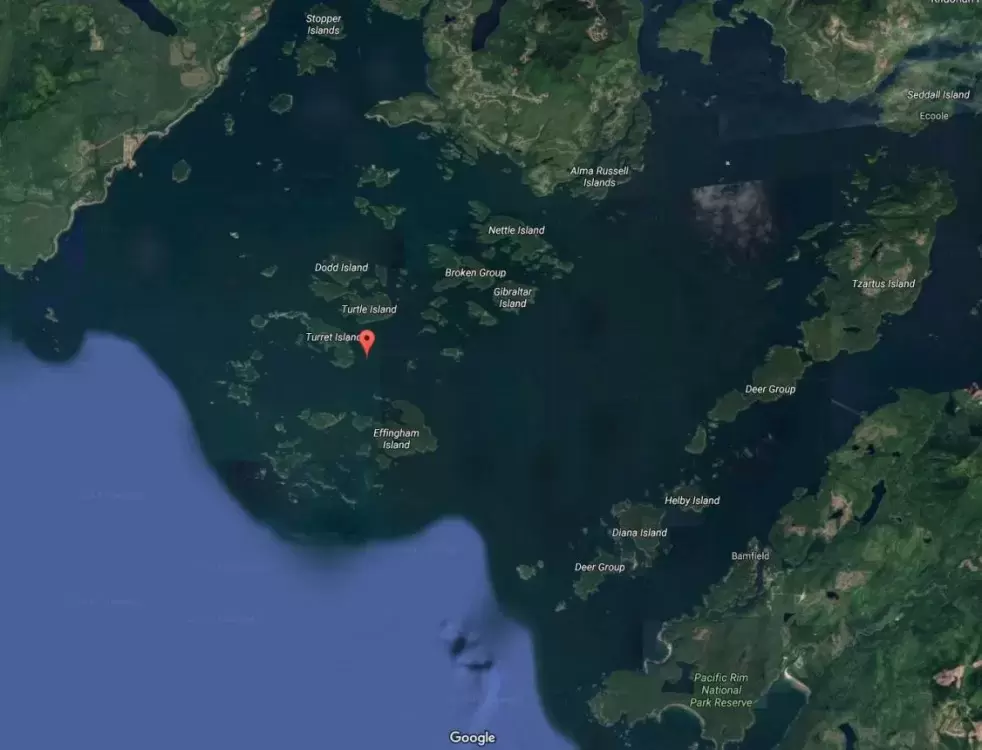The Tseshaht are waiting to see how Parks Canada handles the cleanup of thousands of fish farm feed bags that were discovered in the Broken Group Islands this month.
The First Nation first heard of the incident on Friday, Nov. 17 through news media reports that 2,000 plastic feed bags were discovered on at least four of the Broken Group Islands in the Tseshaht hahoulthee. The news broke after an internal Parks Canada memo was leaked to media sources last week. According to news reports, the memo states that the bags were first discovered Nov. 10.
In a statement released today, Tseshaht Chief Councillor Cynthia Dick said the lack of communication regarding the feed bags indicates the need for better transparency from the federal department.
“It is very concerning that Tseshaht only learned of the incident through media sources and not directly from Parks Canada,” said Dick.
Media reports also state that the Parks Canada memo said cleanup of the fish farm bags took place Nov. 10 and 11, but weather prevented staff from accessing other islands to determine the full scope of the pollution. Law enforcement is investigating, and if charges are successful the polluter will be responsible for cleanup costs, according to the memo.
“Tseshaht First Nation wants to see a strong commitment from Parks Canada to work collaboratively in ensuring this is addressed and action is taken to prevent similar occurrences in the future,” said Dick in her statement. “As protectors of our land and resources, Tseshaht First Nation wants to ensure all that is sacred to us is respected in Tseshaht territory. This includes the home and origin of Tseshaht people in the Broken Group Islands.”
Parks Canada and law enforcement agencies have not revealed who is responsible for the thousands of feed bags, but this morning a statement emerged from Omega Pacific Sea Farms, a Port Alberni-based aquaculture company that operates facilities in Barkley Sound. Owner Bruce Kenney said the company is developing a salvage plan after fall storms partially sank Omega’s barge, causing feed bags to be released into the ocean.
“Our Jane Bay farm in Barkley Sound, which has been at this location for over 30 years, has been battered by successive storm events with the first storm occurring on Oct. 18, partially sinking our barge,” states Kenney. “The Canadian Coast Guard attended, and determined the incident to be of low environmental risk.”
Storms continued this fall, creating more problems for the fish farm operator.
“As we were developing a salvage plan, a second storm on Nov. 6 caused further damage,” said Kenney. “After this storm a number of feed bags were recovered from Jane Bay by our staff and caretaker, and placed in empty fish totes all tied and secured onto a cement storage float.”
The fish farm debris has also washed up on Long Beach, and over the weekend members of the Tla-o-qui-aht First Nations and the Surfrider Foundation were collecting the plastic bags, which are each big enough to carry 25 kilograms of feed.
On Friday Mid-Island Member of Parliament Gord Johns called for improvements in how Canada deals with marine pollution.
“The government simply does not have a plan to respond to marine debris incidents like this,” he said. “The federal government needs to act immediately to mitigate the impact on the environment before it causes further harm to the surrounding sensitive ecosystems.”
Johns has recently tabled legislation for a national strategy in how Canada addresses aquatic pollution, including how cleanup efforts would be funded. The MP mentioned the Hanjin Seattle disaster from 2016, which spilled 35 shipping containers into West Coast waters.
“It was a year ago this month that these same coasts were littered with debris from the Hanjin spill which has still not been fully cleaned up,” said Johns.
Dick noted that the debris recently discovered in the Broken Group Islands shows the need for better cooperation to protect the ocean and coasts.
“This is part of a broader issue that requires the attention of all levels of government in partnership with First Nations and the broader community to provide adequate support in protecting our waters, land and resources for future generations,” she said.







